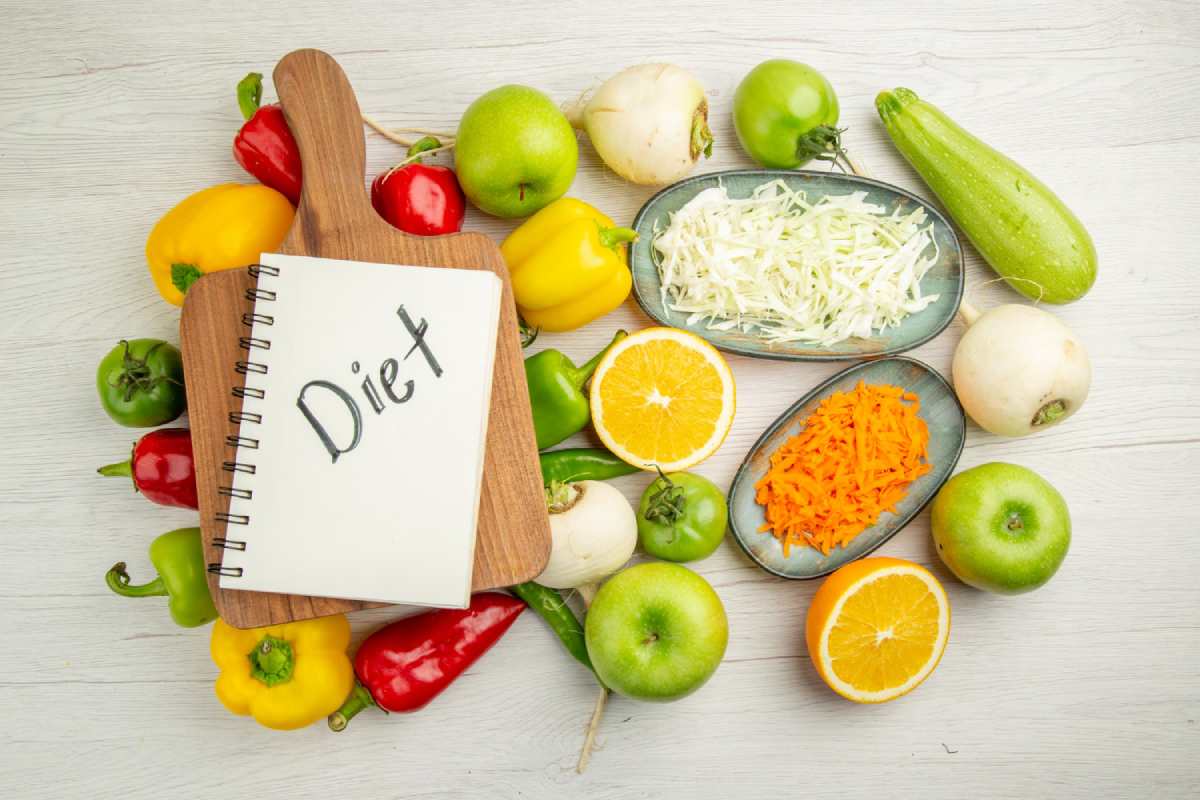Foods For Your Diet – Nutrient-rich foods are important for health. They support the body so that it stays fit and vital for as long as possible. We present 10 foods that contain a particularly large number of vitamins and should ideally be on the menu every day.
Healthy nutrition is not rocket science and does not mean having to constantly mortify yourself. Pasta, cakes and the like can still be eaten (times), but there should also be more healthy Foods For Your Diet that provide the body with all the important substances – to keep it healthy, young and fit. Then fewer of the “worse” ones will automatically be eaten. We present 10 foods that enrich your diet.
Table of Contents
10 Foods that should be on the Daily Menu:
1. Green Leafy Vegetables
green leafy vegetables are a real nutritional miracle. Rich in vitamins C and A, iron, magnesium and folic acid, daily consumption contributes to general health.
Whether raw in a salad or in a smoothie or, depending on the variety, steamed as a side dish, green leafy vegetables are particularly effective.
2. Broccoli And Other Cruciferous Vegetables
Like cauliflower, Brussels sprouts, savoy cabbage, radishes and cress, broccoli belongs to the cruciferous family. Similar to green leafy vegetables, these vegetables are generally very nutritious. But they also contain a very special ingredient: sulforaphane. This secondary plant substance has an anti-inflammatory, antioxidant and detoxifying effect. It is therefore worth putting broccoli and co on the daily menu.
3. Berries
Berries are known for their antioxidants. These plant substances protect the body and cells from free radicals and thus counteract ageing processes. In addition, blueberries, raspberries, blackberries and currants are rich in vitamin C. Vitamin C is important for our immune system and is also needed for the skin’s collagen production.
The special thing about berries: they are low in calories and contain little sugar. For example, add a handful to your muesli every day or eat them on their own or with yoghurt as a snack between meals.
Muesli with apples and oatmeal – a valuable breakfast
4. Apples
The saying “An apple a day keeps the doctor away” is known to many – in fact, it doesn’t exist without a reason. Apples contain numerous valuable ingredients such as B vitamins, vitamins C and E, potassium, calcium and fibre. They are also rich in polyphenols. The secondary plant substances have a cell-protecting and anti-inflammatory effect.
Apples are the ideal healthy snack to take away. But they also go wonderfully with muesli or yoghurt.
5. Oatmeal And Whole Grains
Oatmeal and other whole grains are a great source of fibre. Dietary fibre fills you up in the long term, keeps blood sugar stable, promotes digestion and contributes to intestinal health. It is recommended to eat at least 30 grams of fibre daily. On average, however, Germans only get about 23 to 25 grams. In addition to fibre, whole grain cereals contain valuable vitamins such as B vitamins and minerals such as iron, magnesium and zinc.
Oatmeal also contains beta-glucan. Fibre has been shown to reduce blood cholesterol levels. The morning oat muesli tastes twice as good.
6. Nuts
Eating a trickle of nuts every day is good for your heart and circulatory system. This is mainly due to the monounsaturated and polyunsaturated fatty acids. Nuts also contain valuable protein, fibre, vitamins and minerals. For example, Brazil nuts have a particularly high content of zinc and selenium, which are important for our immune system. Walnuts convince with a particularly high content of vitamin E and omega-3 fatty acids.
So if you feel hungry again between main meals, eat a handful of nuts instead of chips or sweets.
7. Flaxseed
Flax seeds are known for their digestive properties. This is due to the amount of fibre it contains. They are also ironic in healthy fats such as omega-3 fatty acids, which are important for the brain, heart and immune system, among other things. Chia seeds are also rich in omega-3 fatty acids. And other seeds and kernels are also convinced with valuable ingredients that contribute to health. Pumpkin seeds, for example, are rich in vitamin E and zinc.
Flaxseeds and kernels, for example, are good in muesli or on salads.
Important omega-3 fatty acids contained in oils
8. High-quality Vegetable Oils
Although oil is high in calories, it should not be missing from the daily diet in the form of high-quality vegetable oils. For example, olive oil contains numerous unsaturated fatty acids that positively affect blood pressure and help protect against cardiovascular diseases. Linseed oil is particularly rich in anti-inflammatory omega-3 fatty acids. Rapeseed oil also contains many unsaturated fatty acids and is rich in vitamin E, which has an antioxidant effect.
When it comes to vegetable oils, look for high-quality, cold-pressed products. Use them in salads and dips. You can also cook at medium temperatures with olive oil and rapeseed oil. However, linseed oil must not be heated.
9. Green Tea
Green tea is rich in polyphenols. The secondary plant substances have an antioxidant and anti-inflammatory effect, help to regulate blood pressure, and support the immune system. Green iced tea is even said to help with weight loss.
A cup of green tea daily benefits the whole body. Incidentally, black tea also contains polyphenols.
10. Dark Chocolate
Did you think chocolate would be on the list of everyday foods? Well, it’s primarily about dark chocolate. Because it contains a lot of cocoa, and it is full of numerous antioxidants. In addition, cocoa is one of the foods richest in magnesium. A few pieces of dark chocolate daily are good for your health – the higher the cocoa content, the better.
Conclusion
A healthy diet is important to support bodily functions and improve overall health. Pay more attention to the 10 Foods For Your Diet mentioned here – and step by step you can start eating healthier, without giving up and prohibitions in the foreground.
Also Read: Waist trainer

